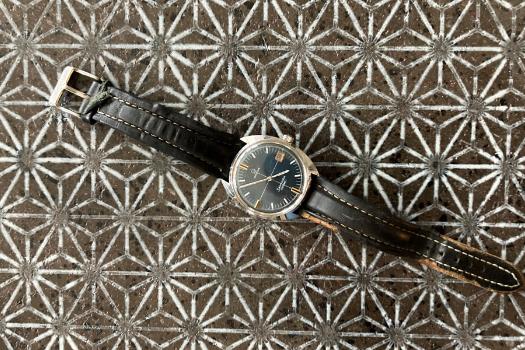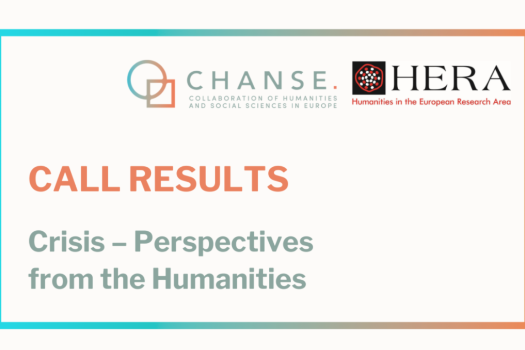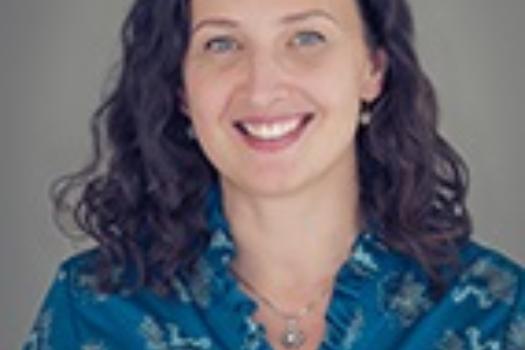
Department of Memory Studies
Department of Memory Studies
Memory has become a crucial research topic in humanities and social sciences in the course of the past few decades due to their comprehensive character. The rediscovery of memory is associated with the transformation of these disciplines, paradigm changes, and modernization processes; nevertheless, it also depends on technological progress and a sense of urgency to capture memories of surviving witnesses of crucial historical events and processes of the 20th century.
The Department of Memory Studies focuses on the ethnological research of memory as a specific source for the reflection of culture, a way of life connecting the past with the present, and a dynamic phenomenon that reflects social and cultural changes and transformation processes within the present-day society. The department focuses on the study of historical continuity and discontinuity, on the functions and relations of various memory media (such as oral tradition, manuscript, picture, print, and other mass media), on memory production and construction in direct interaction with the people involved as well as in the online spaces, on the temporal, spatial, and social dimensions of memory, on the institutional dimension of remembering, and on the understanding of memory as an instrument of the political practice of the present. The centre of attention is both the memory content (the representation of the past of both tangible and intangible character) and the memory processes and media, as well as the culture of remembering.
The scholarly activities of the department focus primarily on the study of forms of intersubjective shared memory. In the field of cultural memory, the department studies such traces of the past that transcend the memory of individuals shared with contemporaries, and such forms of behaviour that aim to preserve these traces. In the field of communicative memory, the department predominantly uses methods of oral history, in order to study the formation and transmission of generational and intergenerational issues, the understanding of everyday life, and the interpretation of historical processes and events of the 20th century. Dealing with the study of politics of memory and the culture of remembering, the department focuses on the public use of the past and ways in which this use becomes part of the collective consciousness of the whole society or a particular social group. Finally, in the field of landscape memory, the department deals with the components of nature and culture that contribute to an important role of landscape as a basic frame of human life and a chronicle of events and stories.
Current and future research agenda:
- Research of family memory and intergenerational transmission
- Culture of remembering of selected social groups
- Transformation of ethnic and cultural traditions within present-day society
- Customary and ritual culture and festivities
- Identity formation aspects of memory and forgetting
- The past in contemporary narrative culture and on-line communication
- Cultural stereotypes and mental images
- Landscape memory
Current Projects
The Land Gone Wild: Archaeological and Transdisciplinary Research on Resilience Strategies in the 20th Century
Social and Humanities Sciences: Humanity and Mankind in the Global Challenges of the Present, Programme Johannes Amos Comenius
CZ.02.01.01/00/23_025/0008705; 2025-2028
Coordinator: Institute of Archaeology of the Czech Academy of Sciences
Partners:Charles University, The Center for Theoretical Study; University of West Bohemia in Pilsen; Institute of Ethnology of the Czech Academy of Sciences
Project participants from the Institute: Přemysl Mácha (work package leader), Kateřina Králová, Sandra Kreisslová, Jana Nosková, Michal Pavlásek, Olga Nešporová, Lucie Uhlíková, Jiří Woitsch, Rose Smith, Eva Kalousová
Abstract: Today’s Czech society faces several interconnected threats (external threat from hostile power, internal threat from political extremists, risk of intentional influence operations, risk of uncoordinated spread of disinformations), which are largely connected by the purposeful handling of the interpretation of the recent past and the manipulation of community memory. It is possible to counter this risk and increase social resilience by using new categories of sources (modern artifacts, ecofacts and their structures, study of the sub-recent landscape and material manifestations of the memory of communities that inhabited it or still live there). These sources provide equally authentic testimony about the past as commonly used official documents, ego-documents, literary images or memories of eyewitnesses, but due to their material (and not narrative) nature, they show significantly higher resistance to misinterpretation than usual historical narratives.
Times of Crisis, Times in Crisis: The Temporalities of Europe in Polycrisis (TiCToC)
Crisis – Perspectives from the Humanities; The Humanities in the European Research Area (HERA) Network in collaboration with CHANSE (Collaboration of Humanities and Social Sciences in Europe)
CHANSE; 03/2025-02/2028
Coordinator: University of Copenhagen, Denmark
Partners: University of St Andrews, United Kingdom; University of Bergen, Norway; Znanstvenoraziskovalni center Slovenske akademije znanosti in umetnosti (ZRC SAZU), Slovenia; Central European University, Austria; Etnologický ústav AV ČR, v. v. i.
Project participants from the Institute: Jana Nosková (principal investigator), Kateřina Králová, Michal Pavlásek, Kateřina Fuksová
Abstract: Europe is in polycrisis: Climate, economy, migration, democracy, armed conflict and academia are pertinent fields where crisis abounds. This project explores the temporal registers of crisis, the vernacular articulation of life in turmoil, and the cultural dynamics expressed in crisis contexts. The central contention is the need to unravel what we term ‘times of crisis’. Centered in anthropology and working across art, history, ethnology and philosophy, this project critically places time at the heart of crisis work, asking what it means to live in times of crisis, how crisis changes over time, and how crisis is perceived in hindsight. Critically, what distinguishes ‘crisis time’ from ‘normal time’? Framing current conditions as ‘crisis’ or projecting time itself as being ‘in crisis’ are prevailing sensibilities in much discourse about polycrisis in Europe and beyond. This project offers empirical, methodological and theoretical apparatuses to better analyze what such crisis attentiveness effects, interrogating what the diverse yet now common category of ‘crisis’ accomplishes. Offering ethnographic takes on philosophical questions concerning ‘times of crisis’, each work package addresses three temporal pins – past, present, and future. The work packages focus on individual nodes of polycrisis in three regional settings: Eastern Europe (war and conflict), Mediterranean (economy), Scandinavia (migration), with shared research questions designed to aid comparison and comprehension. Empirically, the project highlights the diverse ways times of crisis are inhabited, methodologically it shows how times of crisis are expressed in art and literature, and theoretically it poses socio-philosophical questions concerning the temporal coordinates of crisis. Beyond the academy, activities will engage partners at the National Museum of Denmark, EthnoFest Athens, Open Society Archives Budapest, Post Bellum NGO Prague, and the Slovene Ethnological Association.
Project website: https://heranet.info/projects/crisis-perspectives-from-the-humanities/tictoc-times-in-crisis-times-of-crisis-the-temporalities-of-europe-in-polycrisis/
Between “East” and “West” – border experiences and narratives on the Czech-Slovak and Slovak-Ukrainian state borders
Standard Projects, Czech Science foundation, 23-05924S, 2023–2025
Principal Investigator: Institute of Ethnology CAS – Mgr. Jana Nosková, Ph.D.
Partners: Institute of Ethnology, Faculty of Arts, Charles University Prague
Project participants from the Institute: PhDr. Katarína Popelková, CSc., Dr. Natalia Zaitseva-Chipak
The interdisciplinary project deals with border experiences and their changes in times of crises. The subject of its empirical research is the Czech-Slovak and Slovak-Ukrainian borders. The project focuses on the following areas: (1) identifying how borders are perceived, experienced and narrated by local actors; (2) analysing how borders are (re)produced in and through practices and discourses; (3) exploring the strategies and ways for “creating” and “using” borders as resources at the local and national levels; (4) questioning the role of communicative and cultural memory in thematizing state borders and analysing the politics of memory. The research results will be synthesized; will elucidate how borders are (re)constructed from both the micro- and macro-perspectives; and will significantly expand knowledge about border experiences in contemporary, glocalized society. The research uses qualitative methods; its theoretical framework is based on concepts and approaches related to border studies, memory studies, and narrative studies.
Former Projects
Traces of human ingenuity (principal investigator, program NAKI II, Czech Ministry of Culture)
The goal of the project is
a) to locate and document endangered small technical, proto-industrial and agricultural heritage sites in open landscapes including the associated infrastructure and the necessary knowledge for their operation with regards to their role in the formation of local culture, history, landscape, and identity
b) to raise public awareness about the importance of these heritage sites for local culture, history, landscape and identity and promote a greater interest among the general public in their conservation.
Project website: www.stopyumu.cz (in Czech only)
Folk song and dance of the Czech lands - digital system for presentation and preservation
The main goal of the project is to create an effective instrument for making availabletraditional folk song and dance as an important part of cultural heritage and national cultural identity. It will provide the public with an access to the material, which until now remains largely unused, because major part of field records (written or audio) has never been published or the access to them is limited.
The project aims to enable a broad circuit of users to get detailed and comprehensible information about folk song and dance. This information will be delivered through an electronic application based on the latest knowledge aboutprotection and preservation of data carriers.
Changes in funerary rites in Bohemia and Moravia during the 20th century
Team: Olga Nešporová, Alexandra Navrátilová, Heléna Tóth
Project GA ČR, no. 19-09208S, 2019–2021
Weight and Weightlessness of the Folklore: The Folklore Movement of the Second Half of the 20th Century in Czech Lands
Team: Daniela Stavělová, Lucie Uhlíková, Matěj Kratochvíl, Dorota Gremlicová, Zdeněk Vejvoda, Martina Pavlicová, Vít zdrálek, Zita Skořepová-Honzlová, Miroslav Vaněk, Jiří Traxler
Project GA ČR 2017-2019
The project aims to deal with the „folklore movement“, that is, activities of folk ensembles – a wide spread phenomenon in the former socialist Czechoslovakia (1848 – 1989), which has its continuity in today´s Czech Republic. It is an interdisciplinary project based on the methods of oral history, textual analysis and anthropological study of music and dance which aims to explore the ambivalence of the phenomenon and its ideological connotations. The investigation will be based on narratives which occur in the discourse of socio-cultural context of the folk ensembles in different periods of the so-called folklore movement. Narratives provide considerable material to be interpreted with the aim of understanding specific features of the phenomenon of the folklore movement in a particular socio-cultural and political context. The main output of the research will be a collective monograph, proceedings of the international symposium, and six studies published in peer-reviewed ethnological journals Český lid and Národopisná revue.
Collection funds of the Brno seat of the Ethnological Institute comprise films and audiovisual recordings collected during field research.
Basis of the video library consists mainly of copies of 16mm films from the original film library – currently already a closed film collection, what was handed over to the National Film Archive in 2001 and is accessible in Brno for study purposes only. To learn more about this part of the collection fund, click here.
Section of films on ethnological topics comprises short documentary recordings and scientific short films by Vlasta Svobodová from the years 1969 to 1985¨concentrating primarily on traditional folk production.
Folkloristic part of the film library is a collection of both silent and sound films that document mainly folk dance in Moravia nad Silesia, but also in Bohemia and abroad, in that case mostly in Slovakia. Collection of films about dance was created between the years 1956 and 1966 thanks to the long-time and systematic professional interest of Zdenka Jelínková. It comprises films that were shot for academic purposes (scientific films), films created for pedagogical purposes (instructional films), popular science films and also documentaries and live action films on different topics, that nevertheless include also folk dance. Some films include not only folk dance, but also children's plays.
A substantial part of the video library is constituted by video recordings that have been made systematically during field research since 1990 (until 2013 by Jiřina Kosíková, from 2013 by Michal Pavlásek). Audiovisual recording is used as a technique and method in ethnological field research and in creating of systematic video documentation as a material for academic analysis. The recordings focus on contemporary both traditional and new customs, life and culture of minorities, research personalities and individual folklore bearers and interpreters. Video documentaries focus also on current social phenomena, as ex. the so-called migration crisis via recordings of interviews with its direct participants (western and southeastern Europe) and depiction of refugee camps and transit places on the so-called Balkan migration route (Greece, Northern Macedonia).
Edited versions of video recordings are used in conference presentations, as complementary material for specialized lectures and as teaching material at the Department of European Ethnology at the Faculty of Arts of Masaryk University in Brno, film loops make part of exhibitions, etc.
Short documentary films (ex. films Daj bože što je dobro, Moje války, Druhé Vojvodovo: myslet obrazem, Hledání východu, Masa) were screened on both documentary exhibitions and international festivals of documentary and ethnological films (Antropofest Praha, MUSAIONFILM Uherský Brod, Academia Film Olomouc, ETNOFILM Čadca, International Festival of Ethnological Film Belgrade, Days of Ethnographic Film Ljubljana, Moscow International Visual Anthropology Festival, Kratovo Ethnographic Film Festival) and also in audiovisual sections of big international anthropological and ethnological conferences and congresses (ex. IUAES/International Union of Anthropological and Ethnological Sciences Congress, SIEF/The International Society for Ethnology and Folklore Congress).
Films and audiovisual recordings are preserved in formats VHS, S-VHS, Hi8, mini DV,
CD-ROM and DVD. Analog video recordings are digitalised and together with digital video recordings archived in external data storages.
Literature:
Kosíková, Jiřina: Videodokumentace na brněnském pracovišti Etnologického ústavu AV ČR. Český lid 87, 2000, p. 249–261.
Kosíková, Jiřina: Lidové tance a dětské hry ve filmotéce Etnologického ústavu AV ČR. Filmografie. Brno, Ethnological Institute CAS, 1999.





